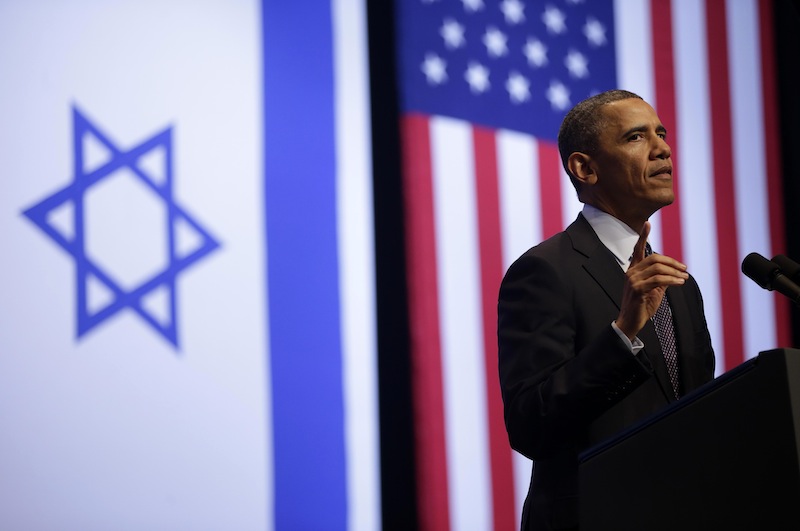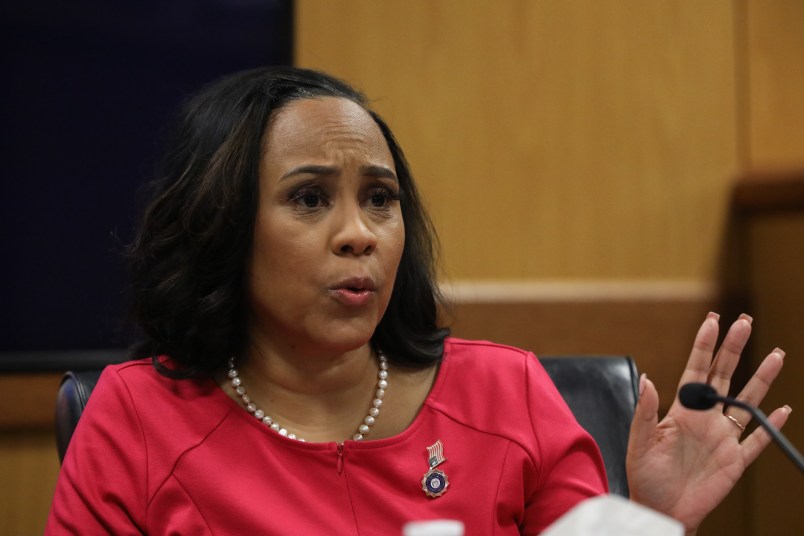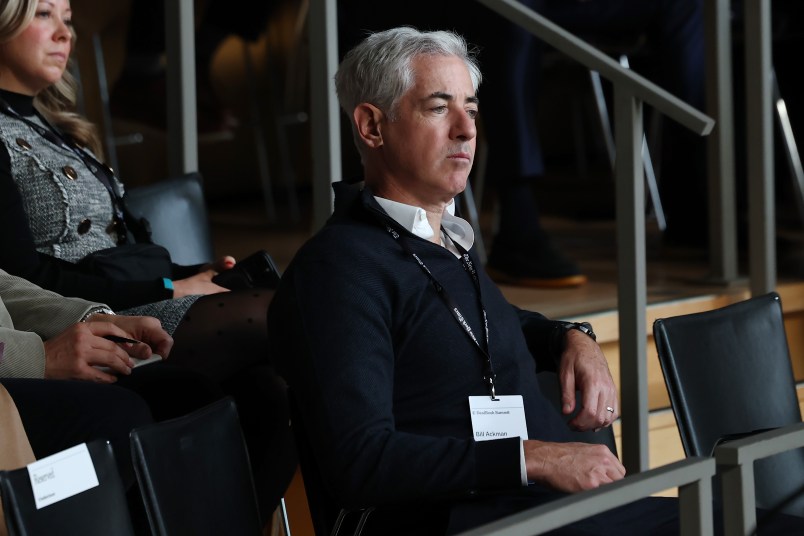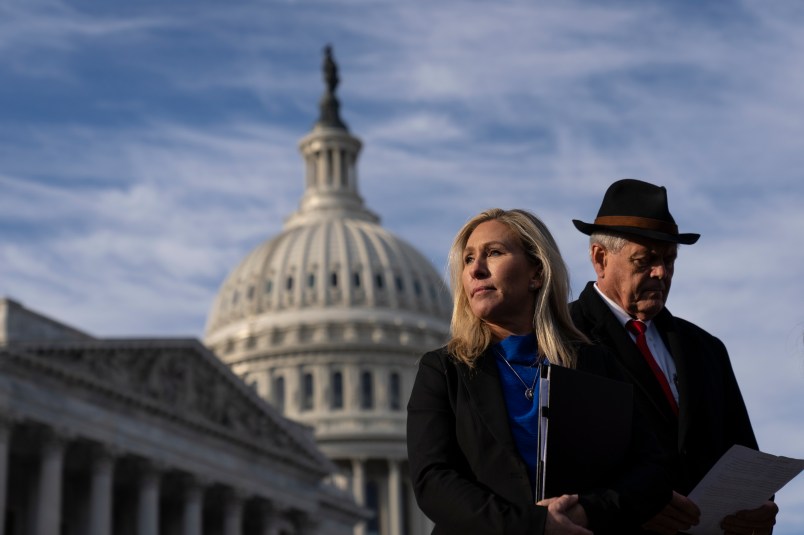JERUSALEM (AP) — President Barack Obama delivered an impassioned appeal Thursday for Israel to recognize that compromise will be necessary to achieve lasting security and to take steps to reverse an “undertow” of international isolation that is worsened by its failure to make peace with the Palestinians. Militants again underscored Israel’s vulnerability by firing rockets into a southern border town.
Obama declared anew that Israeli expansion of housing settlements in disputed territory only hinders chances for fruitful negotiations with the Palestinians, but he did not say as he has in the past that they must be halted.
Reminding an audience of Israeli university students that the United States is their country’s best friend and most important ally, Obama said the U.S. will never back down on its commitment to Israel’s defense, particularly against threats such as the one posed by Iran and its nuclear program.
“As long as there is a United States of America, you are not alone,” he told a packed audience of university students who erupted frequently with applause and standing ovations at Jerusalem’s convention center
The applause continued even as Obama stressed that Israel must make peace with the Palestinians if it is to ensure its survival and long-term viability as a homeland for the Jewish people. Israeli occupation of areas that the Palestinians claim for their own state must end, and progress toward creating that Palestinian state will help Israel’s relations with the rest of the world, notably in its Arab-dominated neighborhood, he said.
“Given the frustration in the international community, Israel must reverse an undertow of isolation,” he said. Whereas once Israel could feel at ease by keeping good relations with Arab autocrats, the revolutions sweeping the Middle East and North Africa have made broader outreach, especially on the Palestinian issue, an imperative, he added.
“Just as Israelis built a state in their homeland, Palestinians have a right to be a free people in their own land,” Obama said. “The Palestinian people’s right to self-determination and their justice must also be recognized. Put yourself in their shoes, look at the world through their eyes. It is not fair that a Palestinian child cannot grow up in a state of her own, living their entire lives with the presence of a foreign army that controls the movements … every single day.”
Unlike in the past when Obama and his top aides have demanded that Israel halt the expansion of settlements in disputed territory, he took a softer approach.
Still, on his first trip to Israel as president, he said its people should understand that specific actions, notably ongoing construction of Jewish housing on disputed territory, hurt the chances for restarting stalled peace talks with the Palestinians, who have made a halt to such building a demand for returning to negotiations.
“Israelis must recognize that continued settlement activity is counterproductive to the cause of peace, and that an independent Palestine must be viable with real borders that have to be drawn,” he said. “No single step is going to erase years of history and propaganda, but progress with the Palestinians is a powerful way to begin, while sidelining extremists who thrive on conflict and thrive on division. It would make a difference.”
Earlier Thursday in the West Bank, standing alongside Palestinian President Mahmoud Abbas, Obama made similar comments and condemned the firing of two rockets on the southern Israeli town of Sderot by militants in Gaza. But, he essentially abandoned previous support for the Palestinian demand that settlement activity end before talks resume.
Obama said the United States continues to oppose settlement construction but said issues of disagreement between the two sides should not be used as an “excuse” to do nothing.
“If the expectation is that we can only have direct negotiations when everything is settled ahead of time, then there is no point for negotiations, so I think it is important to work through this process even if there are irritants on both sides,” Obama said at a joint news conference with Abbas in Ramallah.
Abbas and other Palestinian officials said they would not drop the demand, noting that much of the world considers the settlements to be illegal and not merely an impediment to peace talks.
“We require the Israeli government to stop settlements in order to discuss all our issues and their concerns,” Abbas told the news conference, a marquee event during Obama’s brief visit to the West Bank on the second day of his Mideast visit. “It’s the duty of the Israeli government to stop the settlement activities to enable us to talk about the issues in the negotiations.”
During his first four years in office, Obama had sided with the Palestinians on the issue. He and his surrogates repeatedly have demanded that all settlement activity cease. However, when Israel reluctantly declared a 10-month moratorium on construction, the Palestinians balked at returning to negotiations until shortly before it expired and talks foundered shortly thereafter.
The Palestinians want a state in the West Bank, Gaza and East Jerusalem — territories Israel captured in the 1967 war — but are ready for minor adjustments to accommodate some settlements closest to Israel. Since 1967, Israel has built dozens of settlements in the West Bank and East Jerusalem that are now home to 560,000 Israelis — an increase of 60,000 since Obama became president four years ago.
Obama’s comments in Ramallah echoed those of Israeli Prime Minister Benjamin Netanyahu, who has repeatedly called for the Palestinians to drop preconditions for re-launching the stalled peace talks. Obama’s remarks were sure to reinforce deep skepticism among Palestinians about whether he is willing or able to use U.S. influence to push Israel on key issues.
In what appeared to be an attempt to blunt such criticism, Obama used his speech to the Israeli students to appeal to their love of freedom, respect for human rights and common values with Americans to do the right thing.
He offered profuse praise for Israel’s history as a haven for refugees fleeing social and religious persecution. He hailed the technological innovations made by Israeli scientists and engineers
Though he made no demands of Israel, he made clear he was seeking their cooperation and understanding as a friend, noting that it would be easier for him to avoid anything approaching criticism of Israel because of its very strong backing in Congress and among the American people.
“Politically, given the strong bipartisan support for Israel in America, the easiest thing for me to do would be to put this issue aside, just express unconditional support for whatever Israel decides to do that would be the easiest political path. But I want you to know that I speak to you as a friend who is deeply concerned and committed to your future.”
___
Associated Press writers Karin Laub in Ramallah and Ian Deitch and Josef Federman in Jerusalem contributed to this report.
Copyright 2013 The Associated Press.










